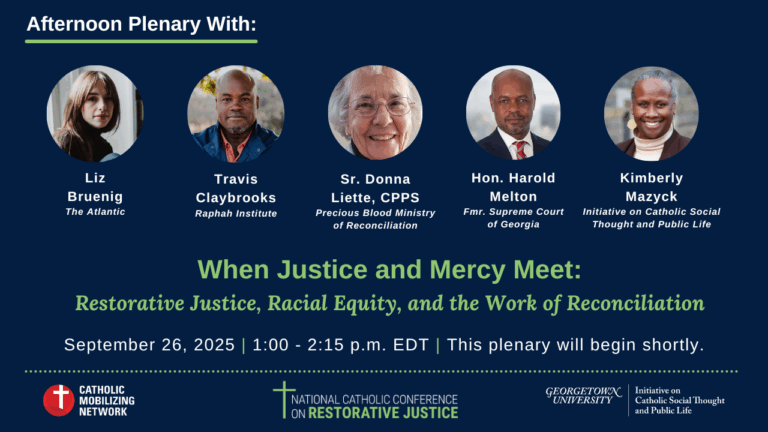New Year, New Possibilities: Death Penalty Abolition Efforts in 2021
The early days of 2021 were marred by three federal executions in a single week. It was a tragic end to the Trump administration’s unprecedented spree of killings which took the lives of twelve men and one woman in the span of seven months.
Understanding better than ever before the unnecessary cruelty of capital punishment, new opportunities to end this archaic practice are before us. As both federal and state legislators rush to file repeal bills and the drumbeat to advance abolition efforts grows louder under the new leadership of President Biden, here is what you need to know.
Congress
In early January, two bills to abolish the federal death penalty were filed. The first bill — bicameral — is cosponsored by Rep. Ayanna Pressley (D-MA-7) and Senator Richard Durbin (D-IL). In his position as Chairman of the Senate Judiciary Committee combined with his power as Majority Whip, Senator Durbin’s co-sponsorship lends significant cachet to the bill and signifies that abolition is a priority for congressional leadership. The other repeal bill is authored by Rep. Adriano Espaillat (D-NY-13). As the bills continue to collect a growing number of Democratic co-sponsors, efforts urging Republican legislators to support the bills are underway.
President Biden, a Catholic, is the first president in U.S. history to openly oppose the the death penalty. If an abolition bill successfully arrived on the president’s desk, all signs indicate he would enact it into law.
Ohio
On Jan. 9, Ohio governor Mike Dewine signed into law a bill that prohibits people with severe mental illness from receiving a death sentence. The bill’s passage is the result of a multi-year effort in the state’s legislature to limit Ohio’s death penalty. According to the Death Penalty Information Center, multiple states have considered bills prohibiting the execution of individuals with severe mental illness, but Ohio’s is the first such exemption to become law.
Many Ohio legislators and allies in the abolition movement consider the new law an encouraging sign that the state’s death penalty is in its final days. Public support for the death penalty is waning too. A recent poll showed that 59% of Ohioans are in favor of replacing the death penalty with a sentence of life in prison without the possibility of parole.
Gov. Dewine has also made headlines during his two-year term by commuting the death sentences of more than a dozen people on Ohio’s death row. The state’s last execution was of Robert Van Hook in July 2018.
The introduction of legislation to fully abolish Ohio’s death penalty is anticipated in the current session.
Virginia
Between 1976 and 2017, Virginia carried out more than 100 executions, placing it second only to Texas in its proclivity for state-sanctioned murders. Today, however, Virginians are envisioning a future for their state in which capital punishment is obsolete. Years of grassroots efforts and conversations among state leadership are making tangible the possibility of eradicating the southern state’s death penalty. As Virginia Catholic Conference Executive Director Jeff Caruso noted in a Jan. 15 statement, “We have other ways to provide punishment and protect society without resorting to executions.”
Bipartisan support carved out a path for two abolition bills to be introduced at the beginning of Virginia’s 30-day legislative session this year. Both bills are moving quickly and have a strong chance of passing in each chamber.
Governor Ralph Northam has publicly indicated his support for ending Virginia’s death penalty and is expected to sign any abolition bill that crosses his desk into law later this spring.
Wyoming
A bill to end Wyoming’s death penalty will be introduced during the state’s 2021 legislative session, scheduled to convene in March. Republican-led repeal efforts over the past few years illustrate a growing national trend of conservative voices throwing their weight behind the movement to abolish the death penalty.
In an op-ed published in September 2020, Wyoming’s Rep. Jared Olson — a Republican legislator who introduced repeal bills the past two years — noted, “There are a growing number of conservatives who agree with me. Nearly half of the legislature has signed on to my bill… We must live out our values and be principled.”
There is currently no one on Wyoming’s death row and the state’s last execution was carried out in 1992.










